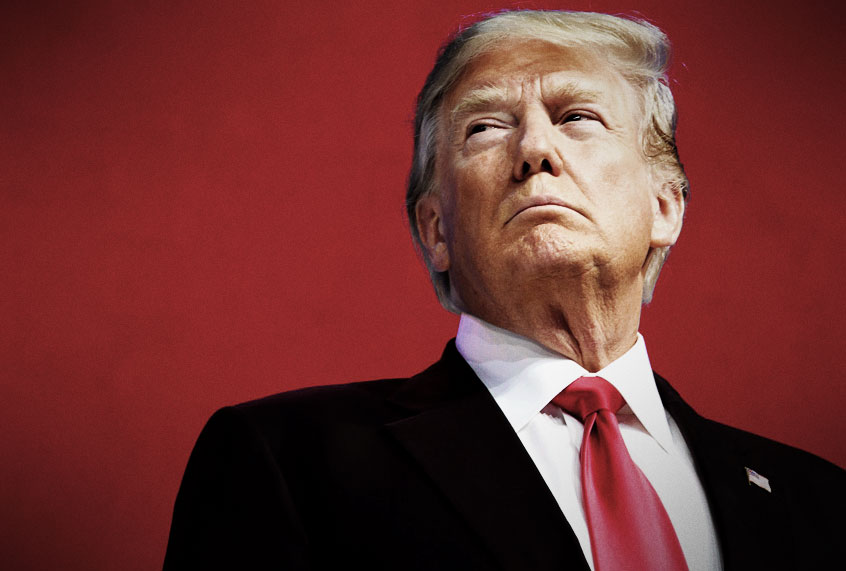Some of President Donald Trump’s most vehement critics, from House Speaker Nancy Pelosi to MSNBC’s Joe Scarborough, praised his D-Day 75 speech in Normandy, France on Thursday. On “Morning Joe,” NeverTrump conservative Scarborough and his liberal co-host Mika Brzezinski can usually be counted on for nonstop Trump-bashing. But after Trump — in the presence of French President Emmanuel Macron and surviving World War II veterans who are now in their nineties — celebrated the heroes of June 6, 1944 and the historic bonds between France and the United States, Scarborough exalted Trump’s words as “the most powerful speech of his presidency.” And Brzezinski concurred. Indeed, it was a rare moment of dignity for Trump, especially in light of all the time he has spent attacking and undermining the North Atlantic Treaty Organization (NATO) and insulting long-time European allies of the United States. And some articles published in The Atlantic and the Washington Post following Trump’s speech on the 75th anniversary of D-Day assert that Trump’s words in Normandy were very much at odds with everything he has done to harm NATO and damage U.S./European alliances.
The Atlantic’s Peter Nicholas, who was in the Normandy American Cemetery on Thursday, asked Pelosi what she thought of Trump’s 30-minute speech; the House speaker responded, “Lovely. The president made a very fine speech.” Nicholas himself describes the speech as “reassuring,” noting that Trump “touted the courage of men who were wounded during the war, the power of an alliance that defeated Nazism.” But Nicholas, in his Atlantic piece, goes on to describe the “incongruities” between Trump’s words in Normandy and his own actions.
By attacking the late Sen. John McCain’s military service, Nicholas notes, Trump “denigrated a war hero for allowing himself to get injured and captured.” And Trump’s history, Nicholas adds, has been decidedly anti-NATO.
“A moment in the speech that NATO allies no doubt appreciated was Trump’s mention of the military alliance that won World War II,” Nicholas writes before noting that the president has “campaigned on a nationalist platform that was suspicious of multilateral agreements,” threatened to pull the U.S. out of NATO and attacked long-time NATO allies “for failing to shoulder more of the costs.”
Washington Post columnist David Ignatius expresses similar thoughts in his June 6 column, explaining that although Trump “spoke the right words in commemorating the 75th anniversary of D-Day,” he hasn’t practiced what he preached in Normandy.
Ignatius praises Trump’s speech as “well-written and emotionally resonant,” but he stresses that while he “applauded the sentiments” when the president was speaking, he “couldn’t help wondering: does Trump fully embrace this message and the transatlantic alliance that made victory against Germany possible?”
During his D-Day speech, Trump asserted, “To all of our friends and partners: our cherished alliance was forged in the heat of battle, tested in the trials of war and proven in the blessings of peace. Our bond is unbreakable.” Ignatius applauds those words yet notes that this is the same Donald Trump who “attacked the mayor of London as a ‘stone cold loser,’ called for a no-deal Brexit that could weaken both Britain and the European Union, and said he favors a wall — or at least a hard border — between the Irish Republic and Northern Ireland, which could undermine peace there.”
Ignatius goes on to say that “the strength of Trump’s speech here was that, in the style of Ronald Reagan, he evoked the personal lives of the D-Day veterans assembled behind him on the podium. For once, he wasn’t telling his own story, but that of the United States and its allies.”
The Washington Post columnist also praised Macron’s speech, writing, “This D-Day anniversary was especially poignant because the surviving veterans are now all in their 90s or older, and few are likely to be alive for an 80th anniversary celebration. That made their presence here an emotional touchstone for Trump and his host, French President Emmanuel Macron, who delivered a superb speech on the theme: ‘France has not forgotten.’”
Ignatius concludes his column by saying that in Normandy, Trump “stood in the shadow of” 1944 leaders such as President Franklin Delano Roosevelt, British Prime Minister Winston Churchill and Gen. Dwight D. Eisenhower — and adds, “Rarely did a speech and the speaker seem so much in conflict.”


